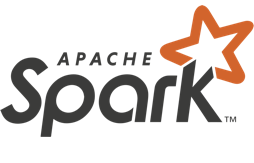#
# Licensed to the Apache Software Foundation (ASF) under one or more
# contributor license agreements. See the NOTICE file distributed with
# this work for additional information regarding copyright ownership.
# The ASF licenses this file to You under the Apache License, Version 2.0
# (the "License"); you may not use this file except in compliance with
# the License. You may obtain a copy of the License at
#
# http://www.apache.org/licenses/LICENSE-2.0
#
# Unless required by applicable law or agreed to in writing, software
# distributed under the License is distributed on an "AS IS" BASIS,
# WITHOUT WARRANTIES OR CONDITIONS OF ANY KIND, either express or implied.
# See the License for the specific language governing permissions and
# limitations under the License.
#
"""
.. attribute:: ImageSchema
An attribute of this module that contains the instance of :class:`_ImageSchema`.
.. autoclass:: _ImageSchema
:members:
"""
import sys
import warnings
import numpy as np
from pyspark import SparkContext
from pyspark.sql.types import Row, _create_row, _parse_datatype_json_string
from pyspark.sql import DataFrame, SparkSession
__all__ = ["ImageSchema"]
[docs]class _ImageSchema(object):
"""
Internal class for `pyspark.ml.image.ImageSchema` attribute. Meant to be private and
not to be instantized. Use `pyspark.ml.image.ImageSchema` attribute to access the
APIs of this class.
"""
def __init__(self):
self._imageSchema = None
self._ocvTypes = None
self._columnSchema = None
self._imageFields = None
self._undefinedImageType = None
@property
def imageSchema(self):
"""
Returns the image schema.
:return: a :class:`StructType` with a single column of images
named "image" (nullable) and having the same type returned by :meth:`columnSchema`.
.. versionadded:: 2.3.0
"""
if self._imageSchema is None:
ctx = SparkContext._active_spark_context
jschema = ctx._jvm.org.apache.spark.ml.image.ImageSchema.imageSchema()
self._imageSchema = _parse_datatype_json_string(jschema.json())
return self._imageSchema
@property
def ocvTypes(self):
"""
Returns the OpenCV type mapping supported.
:return: a dictionary containing the OpenCV type mapping supported.
.. versionadded:: 2.3.0
"""
if self._ocvTypes is None:
ctx = SparkContext._active_spark_context
self._ocvTypes = dict(ctx._jvm.org.apache.spark.ml.image.ImageSchema.javaOcvTypes())
return self._ocvTypes
@property
def columnSchema(self):
"""
Returns the schema for the image column.
:return: a :class:`StructType` for image column,
``struct<origin:string, height:int, width:int, nChannels:int, mode:int, data:binary>``.
.. versionadded:: 2.4.0
"""
if self._columnSchema is None:
ctx = SparkContext._active_spark_context
jschema = ctx._jvm.org.apache.spark.ml.image.ImageSchema.columnSchema()
self._columnSchema = _parse_datatype_json_string(jschema.json())
return self._columnSchema
@property
def imageFields(self):
"""
Returns field names of image columns.
:return: a list of field names.
.. versionadded:: 2.3.0
"""
if self._imageFields is None:
ctx = SparkContext._active_spark_context
self._imageFields = list(ctx._jvm.org.apache.spark.ml.image.ImageSchema.imageFields())
return self._imageFields
@property
def undefinedImageType(self):
"""
Returns the name of undefined image type for the invalid image.
.. versionadded:: 2.3.0
"""
if self._undefinedImageType is None:
ctx = SparkContext._active_spark_context
self._undefinedImageType = \
ctx._jvm.org.apache.spark.ml.image.ImageSchema.undefinedImageType()
return self._undefinedImageType
[docs] def toNDArray(self, image):
"""
Converts an image to an array with metadata.
:param `Row` image: A row that contains the image to be converted. It should
have the attributes specified in `ImageSchema.imageSchema`.
:return: a `numpy.ndarray` that is an image.
.. versionadded:: 2.3.0
"""
if not isinstance(image, Row):
raise TypeError(
"image argument should be pyspark.sql.types.Row; however, "
"it got [%s]." % type(image))
if any(not hasattr(image, f) for f in self.imageFields):
raise ValueError(
"image argument should have attributes specified in "
"ImageSchema.imageSchema [%s]." % ", ".join(self.imageFields))
height = image.height
width = image.width
nChannels = image.nChannels
return np.ndarray(
shape=(height, width, nChannels),
dtype=np.uint8,
buffer=image.data,
strides=(width * nChannels, nChannels, 1))
[docs] def toImage(self, array, origin=""):
"""
Converts an array with metadata to a two-dimensional image.
:param `numpy.ndarray` array: The array to convert to image.
:param str origin: Path to the image, optional.
:return: a :class:`Row` that is a two dimensional image.
.. versionadded:: 2.3.0
"""
if not isinstance(array, np.ndarray):
raise TypeError(
"array argument should be numpy.ndarray; however, it got [%s]." % type(array))
if array.ndim != 3:
raise ValueError("Invalid array shape")
height, width, nChannels = array.shape
ocvTypes = ImageSchema.ocvTypes
if nChannels == 1:
mode = ocvTypes["CV_8UC1"]
elif nChannels == 3:
mode = ocvTypes["CV_8UC3"]
elif nChannels == 4:
mode = ocvTypes["CV_8UC4"]
else:
raise ValueError("Invalid number of channels")
# Running `bytearray(numpy.array([1]))` fails in specific Python versions
# with a specific Numpy version, for example in Python 3.6.0 and NumPy 1.13.3.
# Here, it avoids it by converting it to bytes.
data = bytearray(array.astype(dtype=np.uint8).ravel().tobytes())
# Creating new Row with _create_row(), because Row(name = value, ... )
# orders fields by name, which conflicts with expected schema order
# when the new DataFrame is created by UDF
return _create_row(self.imageFields,
[origin, height, width, nChannels, mode, data])
[docs] def readImages(self, path, recursive=False, numPartitions=-1,
dropImageFailures=False, sampleRatio=1.0, seed=0):
"""
Reads the directory of images from the local or remote source.
.. note:: If multiple jobs are run in parallel with different sampleRatio or recursive flag,
there may be a race condition where one job overwrites the hadoop configs of another.
.. note:: If sample ratio is less than 1, sampling uses a PathFilter that is efficient but
potentially non-deterministic.
.. note:: Deprecated in 2.4.0. Use `spark.read.format("image").load(path)` instead and
this `readImages` will be removed in 3.0.0.
:param str path: Path to the image directory.
:param bool recursive: Recursive search flag.
:param int numPartitions: Number of DataFrame partitions.
:param bool dropImageFailures: Drop the files that are not valid images.
:param float sampleRatio: Fraction of the images loaded.
:param int seed: Random number seed.
:return: a :class:`DataFrame` with a single column of "images",
see ImageSchema for details.
>>> df = ImageSchema.readImages('data/mllib/images/origin/kittens', recursive=True)
>>> df.count()
5
.. versionadded:: 2.3.0
"""
warnings.warn("`ImageSchema.readImage` is deprecated. " +
"Use `spark.read.format(\"image\").load(path)` instead.", DeprecationWarning)
spark = SparkSession.builder.getOrCreate()
image_schema = spark._jvm.org.apache.spark.ml.image.ImageSchema
jsession = spark._jsparkSession
jresult = image_schema.readImages(path, jsession, recursive, numPartitions,
dropImageFailures, float(sampleRatio), seed)
return DataFrame(jresult, spark._wrapped)
ImageSchema = _ImageSchema()
# Monkey patch to disallow instantiation of this class.
def _disallow_instance(_):
raise RuntimeError("Creating instance of _ImageSchema class is disallowed.")
_ImageSchema.__init__ = _disallow_instance
def _test():
import doctest
import pyspark.ml.image
globs = pyspark.ml.image.__dict__.copy()
spark = SparkSession.builder\
.master("local[2]")\
.appName("ml.image tests")\
.getOrCreate()
globs['spark'] = spark
(failure_count, test_count) = doctest.testmod(
pyspark.ml.image, globs=globs,
optionflags=doctest.ELLIPSIS | doctest.NORMALIZE_WHITESPACE)
spark.stop()
if failure_count:
sys.exit(-1)
if __name__ == "__main__":
_test()
